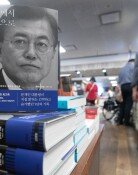[Editorial] Political Rhetoric
Although a decade has passed since Korea was hit by the Asian financial crisis, the government has not firmly put the economy on the path toward sustainable growth. In fact, its economy is still exposed to considerable risk. The potential growth rate which affects future growth has also ceaselessly plunged, hampering the country to join the ranks of advanced nations. All of the research works submitted to a joint symposium, which was recently held by 40 economy-related organizations, including the Korean Economic Association, are filled with gloomy forecasts.
Park Yeong-cheol, professor at Seoul National University, points out that Korea is unlikely to be able to return to a high-growth mode since its economy which has lost its growth engine is on the downward track. The Bank of Korea forecasts that the potential growth rate of Korea which was 4.8 percent between 2001 and 2004 may fall as low as four percent between 2005 and 2014.
Above all, the government is largely to be blamed for Koreas murky prospect because it has hindered the recovery of domestic investment by obsessively emphasizing an artificially-balanced regional development. For instance, Hynix Semiconductor Inc., which announced its plan to expand its plant in the Seoul metropolitan area, has not been able to receive government permission to do so. Moreover, the top 600 companies, which have led facility investment in the nation, are also expected to decrease their investment by 12 percent this year. The average increase rate of investment of those companies was 17 percent in 2006. So is slowing down the economic growth for the sake of balanced development which makes everyone equally poor a good policy? Its important to remember that low-income earners are likely to suffer the most from the economic slowdown. While turning its back on investment, (the government) has been hanging only on real-estate regulations to mop up excess liquidity, said Choi Gong-pil, a senior researcher at the Korea Institute of Finance.
The government has focused only on redistribution policies by increasing taxes rather than trying to enlarge the pie that we all share through economic growth. The economy has lost its growth momentum due to increased taxes which undermine productivity. The government has failed not only to make the economy grow, but also to distribute wealth by stubbornly trying to bridge the gap between the rich and poor. Economists point out that a great number of people have fallen into poverty, worsening the economic polarization.
Although the government pledged to make a good corporate environment, it has ended up in empty slogans. The number of corporate regulations has increased from 7,794, as of March 2003, to 8,083, up by 289. The Roh administration has continuously maintained or strengthened regulations that suppress the market, and it has resulted in supply hitches in areas like the service industry, said Kim Tae-jun, professor at Dongduk Womens University, and Yoo Jae-won, professor at Konkuk University. The two professors say that the governments policies have been inordinately centered on promoting equality, triggering overseas consumption to increase in areas such as real estates, education, finance, and tourism.
The service trade deficit hit a record high of $18.76 billion last year, casting a dark shadow over the last years trade surplus of $29.21 billion, mainly earned by exporting manufactured goods. An increased number of Korean consumers, who are not satisfied with domestic services due to the governments market regulations, have been going overseas to fulfill their needs.
Policies based on populism will certainly surface during this years presidential elections. We must stop unverified policies which claim to be folk remedies or remedies for all diseases, Park said. He says that we have to watch out for economic bureaucrats who make imprudent public pledges that are against the market economy or in line with President Rohs code, such as shortening the term for the mandatory military service and expansion in welfare budget.
However, the remaining year of the incumbent government might not be all that gloomy. Kim says that Korea can achieve sustainable growth if the government induces competition and operation of incentive devices by enhancing autonomy of the private sector. Although it might be belated, the government may be able to find a new growth strategy if it establishes a sound framework for economic operations by securing national consensus.







